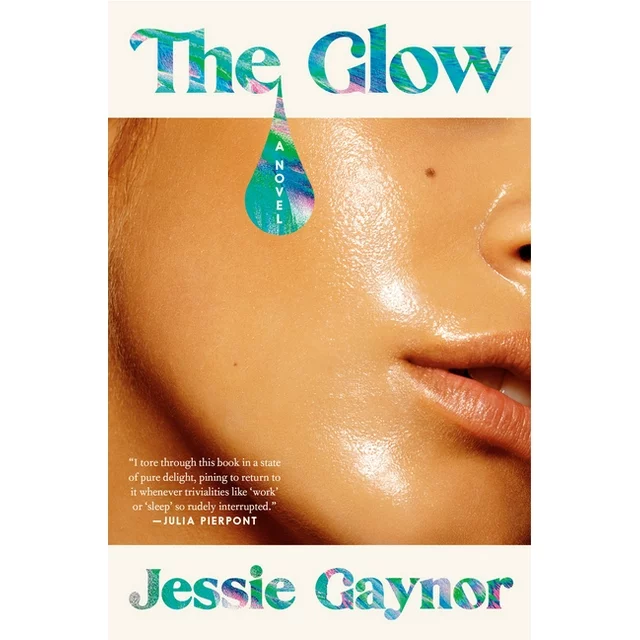
Sometimes you read a novel so entertainingly over-the-top and unhinged, you just have to compliment the author for being so creative and having a wild imagination. And at the same time, you can totally see this scenario playing out in the real world. Thus, I give you my review of R. F. Kuang’s very clever and intriguing novel Yellowface.
When they both went to Yale, protagonist June Hayward and Athena Liu knew each other but they weren’t exactly besties. Years after graduation June and Athena’s lives have greatly diverged. While at Yale, June and Athena were both aspiring writers. June’s first novel sold a pittance and plans to release the novel in paperback was axed. Now June has a lowly job tutoring spoiled rich kids. Her writing career has been extinguished or at least has been put on the back burner.
Athena’s writing career, on the other hand, is white hot. Her debut book is a hit with both the critics and the reading public. Athena has just signed a major deal with Netflix. She is a media darling (it helps Athena is gorgeous) and she’s totally living large. And not surprisingly, June is pea green with envy and quite bitter over Athena’s success.
As Yellowface begins, June and Athena have met up again and the two are hanging out at Athena’s posh apartment after a night of drinking and revelry. Athena decides to make a post-drinking snack of pancakes. Athena starts to choke while eating a pancake. Despite June calling 911 (and her own efforts) Athena dies right in front of her. However, June’s attempt at heroics is quickly dashed when she finds a manuscript Athena had been working on. Athena used a typewriter so the manuscript is already in hard copy form. June steals the manuscript and takes it home with her.
Once home in her shabby apartment, June reads the manuscript. She finds out Athena was writing about Chinese labor workers in Britain during World War I. June realizes she has a great book on her hands and with a few edits she polishes up the manuscript even further. And then June comes up with a rather devious idea. She’s going to try to get Athena’s manuscript published under her own name. This could be June’s ticket to literary success. And Athena’s dead so it shouldn’t really matter, right? Right?
June sends the manuscript under her own name to her publisher. Her publisher loves it and the book, now named The Last Call, gets published. Only, it is published under the name Juniper Song. June’s full name is actually Juniper Song Hayward (yes, her parents were hippies), and because Juniper Song sounds rather Asian, it is perceived the book will sell if the author is deemed Asian. June, of course, is very, very Caucasian.
June’s book garners her a six-figure deal, and becomes a huge best-seller. Now June is getting a lot of accolades and is reaching literary success that just a year ago, she could only dream of. Now she’s the author the media wants to profile, and June believes she’s hit the jackpot. And she hopes she can keep this momentum going as she tries to work on another book while also doing the media circuit. Goodbye poverty and obscurity. Hello riches and fame.
However, it isn’t long before the validation of the book and June’s credibility is questioned. Online, people are starting to pick at her story, her statements to the press, and her public appearances at book events. These comments are brutal, and they begin to hinder June’s attempts at writing another book, which pisses off her publisher. Then one anonymous social media account accuses June of plagiarism (pretty accurate if you ask me). June begins to get terrified. She tries to everything to in her power to stave off the onslaught of outrage and social media cancellation. She panics and is paranoid. She even thinks she sees Athena stalking her. Is it Athena’s ghost? Did Athena fake her own death?
It isn’t long before June is figured out, and she gets hoodwinked into confessing her literary misdeeds by an editorial assistant from her publisher. This editorial assistant threatens to write a tell-all book about and it shakes June to her core. This prompts June to make a stab at writing her own memoir as a way of absolving her sins. But things get even further out of control for her. Does June get punished in the end? Or does she somehow go on totally unscathed? Hmm.
Though June is all together awful, I could not put Yellowface down. I kept reading it, totally caught up in June’s wrongdoing, and how it affected her and other people in her orbit. And as odious as June is other characters aren’t exactly noble themselves. Even Athena isn’t so perfect. As entertaining and gripping as Yellowface is, it also asks an important questions. Who gets to tell the stories? Can only Asian people write the stories of Asian people? Can a white person write about something out of his or her race, and treat the topic with grace and open-mindedness? Well, white people who aren’t named June Hayward maybe. And why in the 21st century, are people of color still seen as tokens? And let’s not forget an Asian author, R. F. Kuang wrote from the perspective of a white woman.
I also loved how Yellowface exposes the flaws of the publishing industry, the unhinged world of social media, and the jealousy of the writing community. Whether you’re familiar with this world, or just love a book that will keep you riveted, Yellowface lives up to the hype. I highly recommend it.








